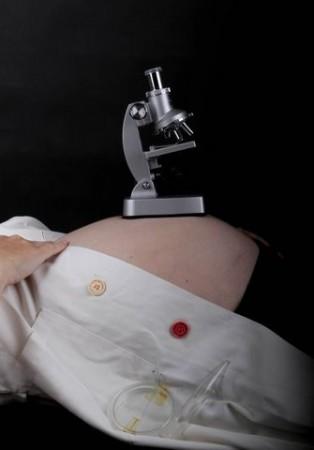 Nina Matthews/Flickr)" />
Nina Matthews/Flickr)" />
Conceiving and giving birth via in vitro fertilization (IVF) technique can increase the risk of skin cancer melanoma in women, researchers claim.
Melanoma is a cancer that starts in the cells that produce the melanin pigment. Melanoma can be identified through visible changes in size or colour of a mole.
The new study, reported in Melanoma Research, states women who became mothers via IVF technique have an increased risk (3.6 fold) of developing invasive type of melanoma, compared to women who cannot become mothers even after undergoing the treatment, ScienceNetwork, reported.
Researchers, however, could not find any link between conceiving and giving birth via non-IVF infertility treatment and cancer.
IVF is an artificial method, known as Assisted Reproductive Technology (ART), adopted by people who experience difficulties in conceiving naturally. It is the process of manually combining an egg and sperm in a laboratory.
For the study, a team of Australian researchers led by Louise Stewart from The University of Western Australia looked at 21, 604 women who opted for infertility treatment between 1982 and 2002. During the 17 year-study, nearly 7,524 women underwent IVF treatment, 14, 870 became mothers and 149 women had a diagnosis of invasive melanoma.
Giving birth via IVF treatment was directly linked to the deadly disease than undergoing the treatment. The risk may be caused by hormonal changes associated with pregnancy, birth and lactation, researchers, said.
"This is an important new finding; however, it requires confirmation from other studies and should be interpreted with caution," Professor Stewart from UWA's School of Population Health, told ScienceNetwork . "The study is an observational study, and as such, can only reveal an association between exposure [IVF plus birth] and outcome [melanoma]. It does not tell us if this association is causal."
The findings come at a time when infertility has become a major problem among Indian couples, including the young generation. According to a 2013 World Bank estimate, the drop in fertility started about 10 years ago in India, with a steady 17 percent decline from the year 2000.
IVF treatment has always been a constant source of concern across the globe. Similar to the current findings, a study presented at the annual meeting of The European Society of Human Reproduction and Embryology (ESHRE) on 9 July claimed that mothers who had multiple IVF babies were at 44 percent higher risks of breast cancer than those who had a single baby via IVF. Previous research also has exposed some pregnancy-related complications associated with IVF treatment. A study published in the British Medical Journal (BMJ) in January found that IVF treatment increased the risk of deadly blood clots and artery blockages.









![Filmfare Awards 2025: Abhishek Bachchan dedicates his win to Aishwarya, Aaradhya; Alia Bhatt trolled for Best Actress award for Jigra [Full list of winners]](https://data1.ibtimes.co.in/en/full/822781/filmfare-awards-2025-abhishek-bachchan-dedicates-his-win-aishwarya-aaradhya-alia-bhatt-trolled.jpg?w=220&h=138)





